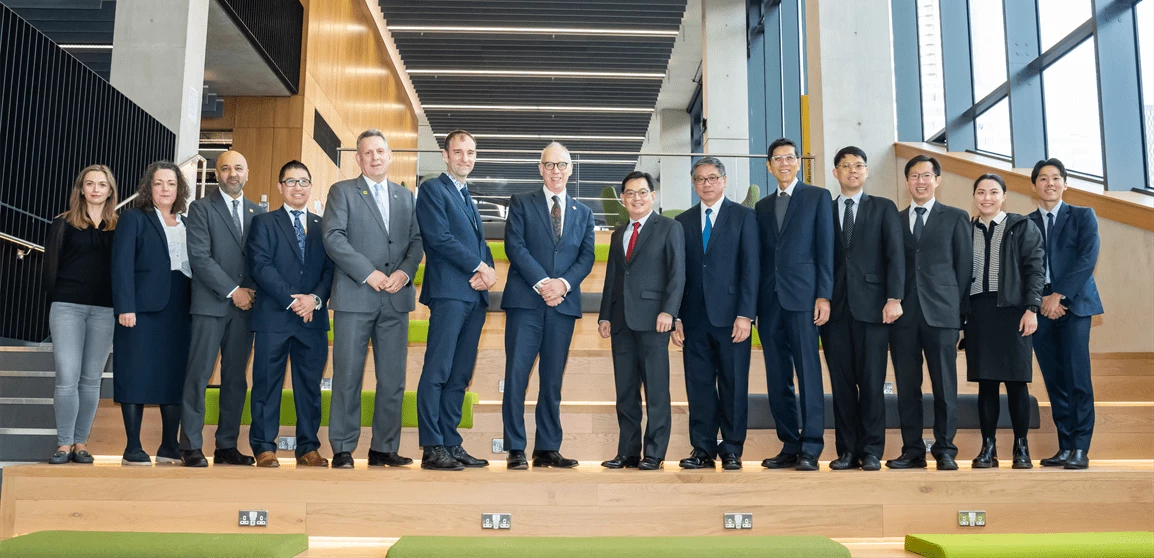Singapore Government strengthens ties with Manchester Metropolitan during visit to the Manchester Fuel Cell Innovation Centre

Singapore’s Deputy Prime Minister, Heng Swee Keat, has visited Manchester Metropolitan University’s campus with a Singapore Government delegation to explore the groundbreaking research into hydrogen and fuel cell technology at our Manchester Fuel Cell Innovation Centre (MFCIC).
The visit, coordinated by Deputy Vice-Chancellor Professor Steve Rothberg, MFCIC Director Amer Gaffer, and Senior Lecturer Dr. Justyna Kulczyk-Malecka, in partnership with the Greater Manchester Combined Authority (GMCA), showcased the University’s commitment to sustainability, innovation, and clean energy solutions.
This commitment aligns with Singapore’s Long-Term Low-Emissions Development Strategy, which aims to achieve net-zero emissions by 2050.
Deputy Prime Minister Heng’s visit marked an important step in further strengthening the relationship between Singapore and Greater Manchester, showcasing our leading hydrogen research and its potential to contribute to the clean energy goals nationally and overseas.
Commenting on the visit, Professor Steve Rothberg said: “Manchester Metropolitan is at the forefront of hydrogen and fuel cell research, and we are proud to showcase our work to Deputy Prime Minister Heng during our 200th anniversary year.
“Our work at the MFCIC is not only innovative but also industry-focused, offering scalable solutions with global impact. We have the potential to make a significant contribution to clean energy ambitions, and we look forward to deepening our ties with Singapore in this critical area.”
Deputy Prime Minister Heng said: “Like Singapore, Manchester is building a vibrant and innovative ecosystem by bringing together government, corporates, academics, investors and talent. There is good potential for Singapore and Manchester to build closer linkages between our innovation ecosystems at the research, translation and commercialisation levels.”
At a time when international cooperation is vital for tackling climate change, this visit paves the way for future research collaborations and a shared commitment to sustainability, innovation and a focus on clean energy solutions.





